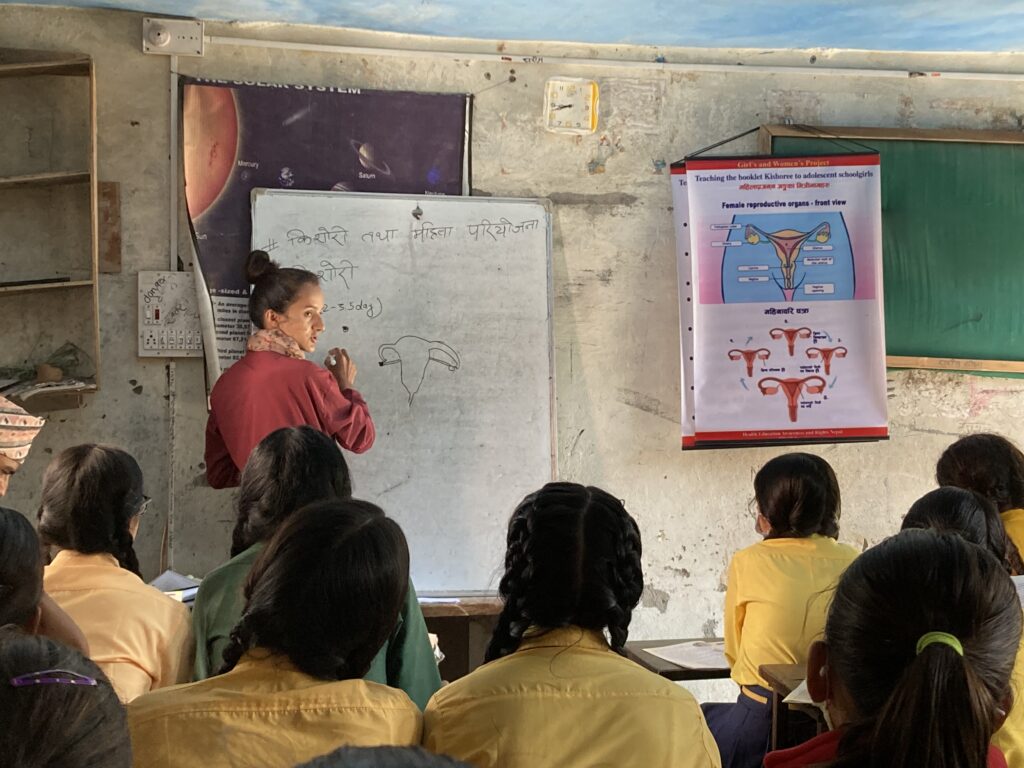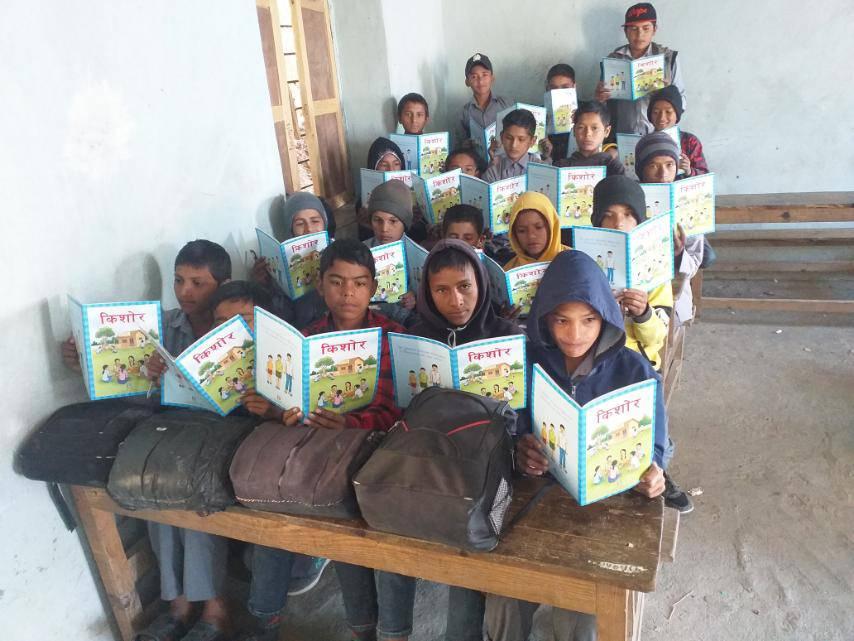In rural Nepal, which is dominated by Hinduism, girls and women are disadvantaged in many respects. One of the main reasons has to do with the taboo on menstrual blood. It prevents menstruation from being recognized as a natural process. Due to ignorance and superstition, girls often experience panic and fear when they have their first menstrual period. They are told that menstruation is a sign of sinfulness, the wrath of the gods, etc. During their period they are considered dirty and are not allowed to use public water sources or touch plants, cows or men.
In many parts of western Nepal, girls and women also have to spend their menstrual periods isolated from home in small, unhygienic and unheated huts. This tradition, called Chhaupadi , although forbidden by law, is still very widespread. During the day women have to do hard physical work. For food they only get rice, salt and some dry grain. Because of the blood taboo, many women have to give birth in these unsanitary conditions in Chhaupadi huts.
Especially in rural areas, women can hardly take care of their menstrual hygiene in a healthy way. The pads we use are either unknown or unaffordable. In most schools there are no separate toilets for girls and no waste bins for pads. Where there is access to such single-use pads, which are on average 90% plastic, they are often incinerated, leading to air pollution. Or they are thrown into the rivers and end up in the sea.
Overall, women in the villages have little access to menstrual pads. They help themselves with unhygienic scraps of fabric, which can easily lead to infections. Experts estimate that in many poor countries, ignorance and poor menstrual hygiene are responsible for a good two-thirds of all diseases of the reproductive organs, including cervical cancer.
Out of shame, especially when their clothes are stained with blood, many girls stay away from school during their period, often failing to graduate. These are all some of the reasons why well over 40% of women in Nepal are illiterate, among men it is around 25%.
Plan:
The project, which is supported by the Schöck-Familien-Stiftung, focuses on educating schoolgirls about menstruation and menstrual hygiene and providing them and their mothers with reusable, plastic-free menstrual pads.
For this purpose, HEAR Nepal has revised an easy-to-understand brochure (“ Kishoree ” = “puberty”) and had it translated from English into Nepali. This brochure deals with the topics of puberty, menstruation and menstrual hygiene, equality, prejudice and sexual abuse. The brochure has already been approved by the Ministry of Health for use in state schools.
In addition, boys will also be educated about puberty (including their own physical and emotional changes), how menstruation works, and the negative consequences of sexual harassment and teasing. To this end, HEAR Nepal, in cooperation with the National Center for Health Professions Education in Kathmandu, developed teaching content for a training course that organizers should go through in order to teach the boys in schools.
Project sponsor: HEAR Nepal Germany eV
Project partner: HEAR Nepal (Kathmandu)
Funding year: since 2021
Project no.: 105-20 si


